A
crowood provides some of the most advanced equipment for businesses producing engineered wood products and panel boards. We have a wide range of wood strand, fiber, and particle processing & screening machines. Acrowood chipping technology produces the finest quality wood chips for your application, yielding the highest rate of usable acceptable chips while keeping your equipment maintenance costs low and your production volume high. Acrowood will custom calibrate the equipment for your facility considering the specific wood species, density, moisture content, and volume.
Talk to us about how we can help your business increase its production of panel and engineered wood products. Come visit the Acrowood Development Center to view Debarking, Chipping, Screening, and Specialty – wood chip, particle & fiber processing equipment and see the difference in craftsmanship and quality.
Optimized green screening solutions
With the challenge of green screening, Acrowood has developed the Trillium Screen. This screen agitates the fibers making the strands dance over the screen, liberating the fines. The three-sided disc shape achieves this without damaging strands. It handles a high loading rate with excellent surge suppression. The triangular shape of the discs provides great agitation. The large strands that topple and tumble over the surface of the screen will form the surface of the board while the undersized material passes through the screen’s 3mm IFO to a DiamondRoll VIRO Fines Screen below. This method allows fines to pass with the small strands while recovering good strands on the Diamond Roll.
The Acrowood DiamondRoll VIRO Fines Screen has the highest and most selective fines removal ever achieved under production conditions, lowest maintenance costs and downtime, best fiber recovery and earliest payback on fiber streams. The DiamondRoll’s Variable InterRoll Opening (VIRO) allows the spacing between the shafts to be set to meet the specific needs of the application. With the fact that there are not two OSB mills that are alike; each mill’s process and strands are unique, this screening combination works due to its extreme versatility.
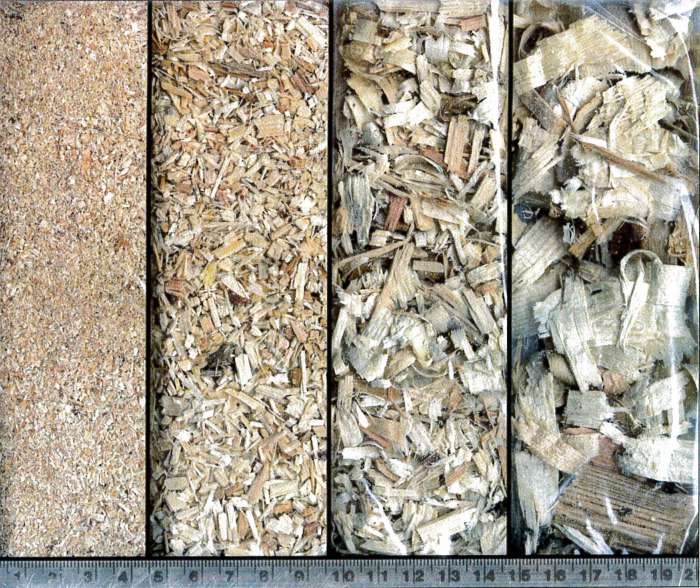
OSB fines screening on dry flakes
Bypassing the fines screening function will improve the fines screen’s efficiency and reduce the size of the screen needed. The key to this operation is agitation. Large diameter discs propel flakes down the screen at a rapid rate so they don’t have time to orient and pass between the discs.
Fines fall between the discs easily along with the smallest of strands. The spacing ranges between 10 – 20 mm, and the disc profile should not break or damage larger strands. The result is around 10 – 30% underflow of the total system flow which can then be passed directly to another screen.
Removing fines from post-drier flow
Moving away from Trommel screens to a more effective method. OSB Mills experiencing clogging and poor fines removal often push the opening size to something larger, resulting in loss of good smaller flakes.
Retain more flakes and separate the fines using the technology of a roll screens. As the roll rotates it captures the fines in smaller textures grooves and passes them through. The flakes stay trapped on the surface of the roll screen, the diameter of the rolls agitate the mat as it passes, ensuring no plugs. Control the the character and size of the fines removed by adjusting the spacing, depth and cut of the rolls.
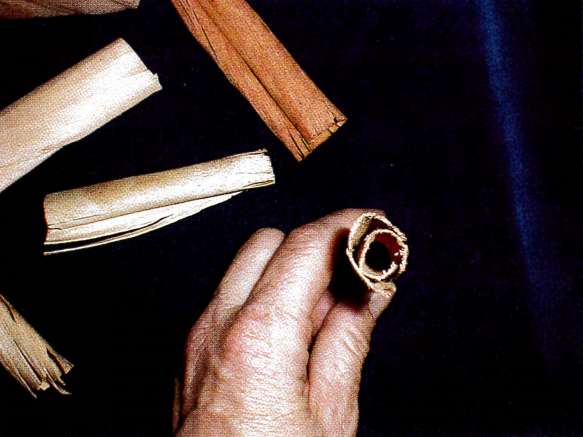
Elimination of tubes and curls in OSB
How to stop the flaking of the surface of OSB panels. We have solved this problem!
This screening method encourages the large strands and flakes to pass between discs if the diameter of adjacent discs is sufficiently different, and the tooth profiles of adjacent discs are different enough, while the tubes are effectively excluded from passing with the flakes by a narrow IFO. The keys to this method are the disc, shaft speed, and the opening between discs.
The screening result is a steady stream of tubes passed off the top of the screen to a flake breaker or other device that can pull them apart, and then drop them back into the flow ahead of the resin blender. Mill’s experience with this method has been excellent, and the problem of tubes spoiling the surface of the panel had been eliminated.
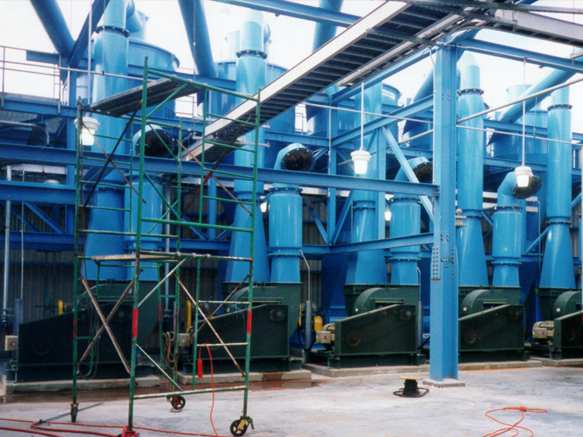
Particleboard screening applications and contaminant removal system
Making “green” panels from recycled materials and waste is more popular than ever, this usually means urban wood or post-consumer waste wood, and it can be heavily contaminated with rocks, metal, plastic, wire, staples, drawer handles, dirt, and all sorts of other non-wood materials and cleaning this can be a real challenge.
Mills that simply need a reliable, durable cleaning method for what is essentially good wood with little junk in it – Air density separation has been successfully applied in many mills to remove metal down to the size of ordinary paper staples and rocks to 2 mm in diameter. In some applications, the wood is clean enough to pass directly into the process without the need for further cleaning.
For more demanding applications there are arrangements where the ADS is used in concert with screens, magnets, and additional vacuum systems, whose output is far cleaner that traditional furnishes.
Green segregation for face and core before refining and hogging
Particleboard furnishes are a blend of materials ranging in size from those that are suitable for face and core as they are, to dust, overthick, and oversized chunks and pieces. The problem has been that green materials are difficult to separate into properly sized fractions with high efficiency and at high volumes. The opportunity of making 4 -5 part separation at the time of first handling, is that the acceptable fractions can be passed directly forward into the proper next stage such as drying, to avoid unnecessary hogging and refining.
Several mills found that rolls screens can be used for this purpose. By placing finely textured rolls shafts in the first part of the screen the face falls though, and this fraction can be collected separately. Next more deeply cut shafts are used to capture the core fractions. Making both shaft surface topography and inter-roll opening key factors in face and core material selection. Successively larger sizes are separated in a similar manner further down the screen, and a slight vacuum can be applied to gather dust from below the screen, typically the infeed end only.
MDF applications
Raw material preparation for MDF is fairly simple, in that the wood needs to be free of foreign contaminants, and have the largest “mechanical overs” removed through the action of a scalping screen. Typically the contaminants are removed with an ADS in the woodyard before the chips or sawdust is pneumatically transported to the pre-steaming bin. Once refined to fiber, the wood is typically not screened again.
Fiber screening for MDF
The current design used for continuous MDF presses employs costly stainless steel platen belts on both the top and bottom of the mat. When pressing boards as thin as 2.5 mm, even small rocks and metal pieces can cause expensive damage to these belts. Experience with air-based sifters and cleaners has shown that small pieces can sneak through and cause this damage.
By applying a vacuum below the roll screen, it is possible to draw fiber between the rolls at a rate sufficient to feed fiber to a modern press. By using finely textured rolls and tight spacing it is possible to physically exclude these hard, damaging pieces from passing with the fiber. This protection system for the press relies on hard steel shafts and tight physical constraints on the contaminants and is not subject to becoming less effective at a higher flow rate.
Debarking Equipment
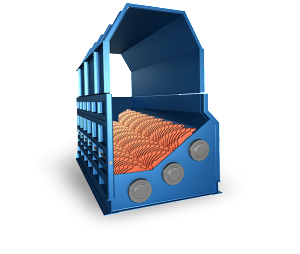
Acrowood Debarking machines are custom fitted for your mill, the rotors, discs and spacing are all considered based on the wood species and log diameter. Acrowood has been continually refining and perfecting the craft of debarking for decades. View the Continuous Rotary Debarker and the new Batch Debarker.
Chipping Equipment
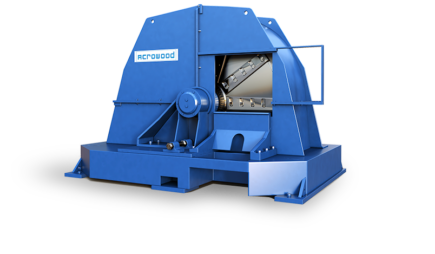
Acrowood chipping technology produces the most efficient and highest quality wood chips. Acrowood provides a full line of wood chipping solutions to meet your specifications. Choose from Whole Log Chipper, Slant Disc Chipper, Veneer Chipper & Feedworks, Rechipper, Chip Cracker, and Chip Slicer.
Screening Equipment
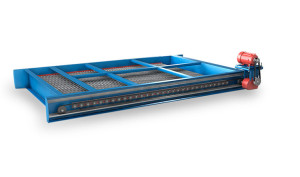
Acrowood screening technology reduces downstream processing costs, providing you with low maintenance, very accurate, heavy duty, high capacity strand and chip sorting options for your operation. We have a wide variety of screens available such as the Trillium OSB Strand Screen ,Disc Thickness Screen, Disc Scalping Screen, Dual Drive Suspended Rotary Screen, DiamondRoll Thickness Screen, DiamondRoll Fine Screen and the DiamondRoll Particle Screen
Distributing & Separating Equipment
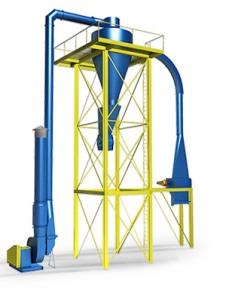
Acrowood makes specialty machinery specifically designed for distribution and separation. Guaranteed to enhance your production lines and add even more value to your wood and materials processing. Such as contaminant removal with the Air Density Separator, meter the flow of materials with the Star Feeder and Screw Distributor.
